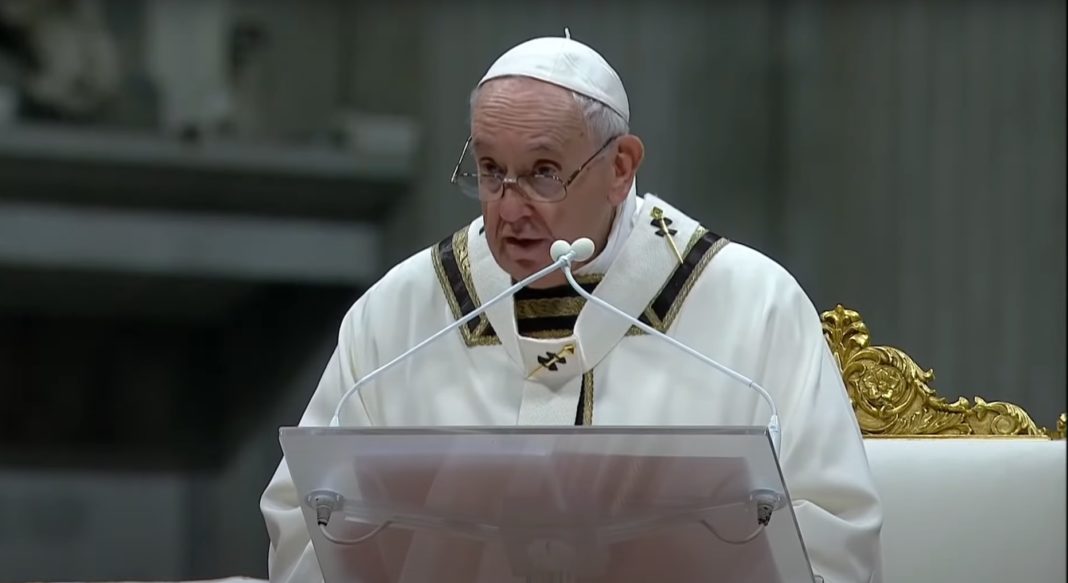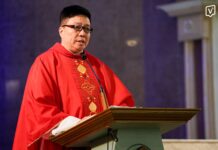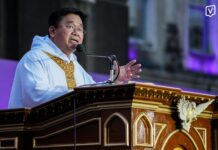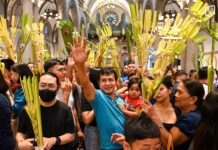Pope Francis’s recent directive, “Traditionis custodes”,” which he issued motu proprio or on his own initiative, has been seen as a guide to the Church, while others viewed it as a limit to the practice of faith by restricting the celebration of the Traditional Latin Mass (TLM).
What is ‘Traditionis custodes’?
Pope Francis’s “Traditionis custodes,“ promulgated on July 16, 2021, repealed Pope Benedict XVI’s 2007 apostolic letter Summorum pontificum.
Summorum pontificum had allowed the practice of the Tridentine Mass or the Traditional Latin Mass (TLM) as the “extraordinary” form of the Mass, with the “ordinary” form being the one that uses the Roman Missal promulgated by Pope Paul VI.
Pope Francis, upon hearing the opinion of the Congregation for the Doctrine of the Faith (CDF), declared the liturgical books promulgated by Saint Paul VI and Saint John Paul II as the unique expression of the lex orandi or rule of prayer of the Roman Rite, in a move to establish ecclesial communion, essentially restricting the celebration of the TLM.
Cheers and jeers
Fr. Roberto Luanzon, Jr., O.P., the regent of the Faculty of Engineering and the vice rector for finance, welcomed the Pontiff’s motu proprio.
“Sa akin naman, wala namang masama i-guide ang mga tao kung mayroong division o hindi maliwanag. Based on the document, it is to guide the people properly about what is important to do about the liturgy of the Church,” Luanzon told the Varistarian.
“Hindi lang naman ito galing sa Pope; tinanong din ang mga bishops at (CDF) ng Vatican. I think this is the result of the consultation: to shed light on how the present world would view his idea of the practice of TLM,” he added.
A Latin Mass goer, PressOne.PH editor and communication professor Rommel Lopez, said he was dismayed over the Pope’s apostolic letter.
“I attend both forms of the Mass. But personally, nasaktan ako sa ginawa [ni Pope]. He is supposed to be a Pope of mercy and compassion. Why is [the Pope] taking (TLM) away from us?” Lopez told the Varsitarian.
Lopez said he preferred attending Masses in Latin over the ordinary form.
“I don’t find Latin Mass harmful. It is spiritually nourishing,” he said.
The Traditional Latin Mass Society of Laguna said it would follow the Pope’s directive.
“We, as adherents and attendees of the TLM, affirm our fidelity and loyalty to Holy Mother Church and the Holy Father Pope Francis. We acknowledge the validity and legitimacy of the liturgical reforms of the 2nd Vatican Council. We, as attendees of the TLM also attend the ordinary form (OF) of the Roman rite and actively serve and participate in the OF celebrations,” it said in a statement.
“We would like to ask you to pray for the priests in the diocese who would like to celebrate the TLM that they may be given approval to do so, and especially for the priests associated with our society who are still learning and who have not stopped in their diligent effort to learn to properly celebrate this Mass,” it added.
Baguio Bishop Victor Bendico said the point of “Traditionis custodes” was to promote communion.
“If ever may nagsasabi na [it caused] division, baka na-misinterpret nila ‘yung mind ni Pope Francis,” he said. “Gano’n din si Pope Benedict noong nag-release niya ‘yung [Summorum pontificum], it is more on communion. The Church is always for communion and not for division.”
Bendico also said that because Vatican II wanted a sense of community to manifest in the celebration of the Mass and other sacraments, the “communitarian” ordinary Mass was better.
“‘Yung ordinary Mass ni Pope Paul VI ay ‘yung pari nakaharap sa tao then there is more spirit of community…we feel that we are in community with the priest. Alam na natin ‘yung nangyayari at ginagawa ng pari diyan,” he said.
“Sa (TLM), nakatalikod ‘yung pari at ‘di mo alam ‘yung sagot yung Latin. ‘Yung sense of community parang di masyado lumilitaw,” he added.
Bendico, who also chairs the Catholic Bishops’ Conference of the Philippines (CBCP) Commission on Liturgy, stressed that Pope Francis considered the wishes of the bishops and bishops’ conferences all over the world.
“He heard the opinion of the (CDF). He desires now an ever search for ecclesial communion he has now established,” Bendico said.
The Pope’s said it was up to each bishop’s “exclusive competence” to authorize the use of the Latin Mass according to the 1962 Roman Missal in his diocese.
“It belongs to the diocesan bishop, as moderator, promoter and guardian of the whole liturgical life of the particular Church entrusted to him, to regulate the liturgical celebrations of his diocese,” read Article 2 of “Traditionis custodes“.
This means that priests who use the traditional Latin rite must request permission from their bishops before continuing to do so.
Livestreaming of these Masses on the internet was prohibited.
Bendico suggested that the Philippine Church conduct a survey before arriving at a conclusion regarding the practice of TLM.
“I could not say anything to encourage or discourage. If I have to be very objective, we need to have a survey so that based on the survey, we could go from there. Something should be based on facts,” he said.
In a statement dated last July 2021, the CBCP backed Pope Francis’s order to restrict the celebration of TLM.
“We express our obedience to and communion with the Supreme Pontiff as he leads us in the realization of the unity of the Church by means of the proclamation of the Gospel and in a particular manner in the celebration of the Eucharist,” the statement read.
It added that as “guardians of the tradition,” based on the title of the papal document, each bishop as “moderator, promoter, and guardian of the whole liturgical life of the particular Church” must “implement the provisions of the motu proprio with utmost care, patience, justice, and pastoral charity.”
The Diocese of Tagbilaran and Archdiocese of Lingayen-Dagupan, among others, announced in their official Facebook accounts that communities attending the Latin Mass were given permission but with restrictions or conditions.
Archbishop Socrates Villegas of Lingayen-Dagupan said the Santuario de San Juan Evangelista is the only parish in the archdiocese permitted to celebrate the Traditional Mass and this could only be done twice a month, according to a circular released last July 24, 2021.














